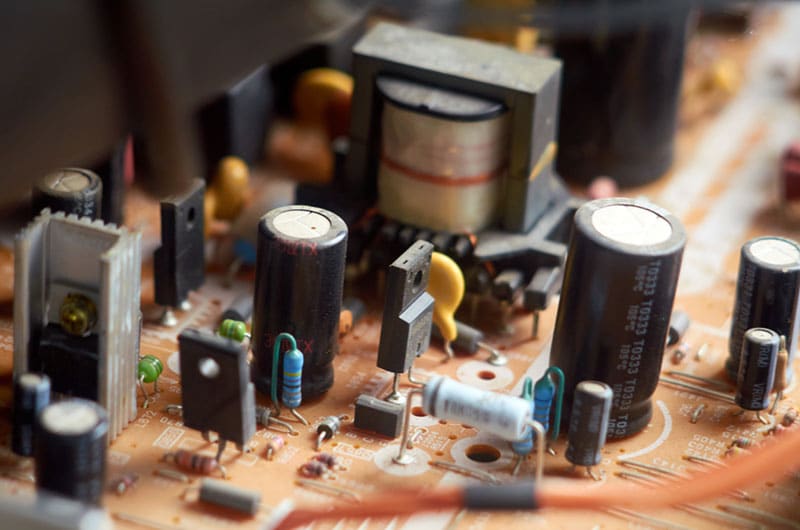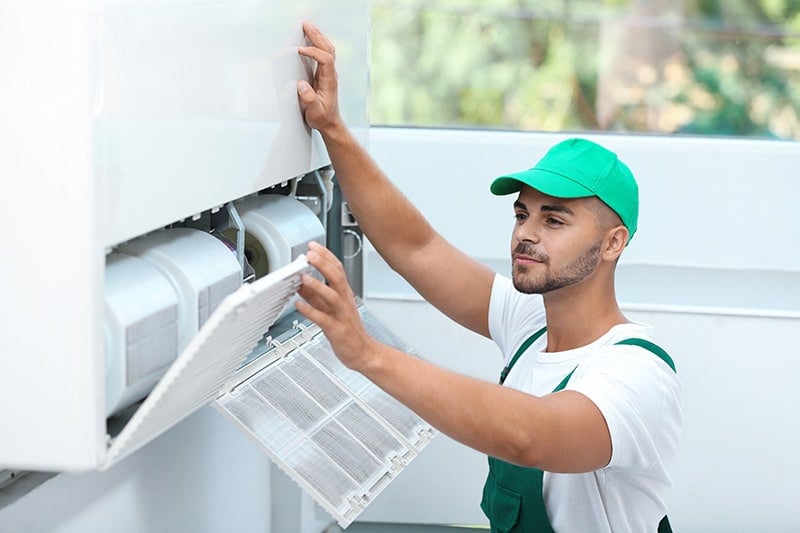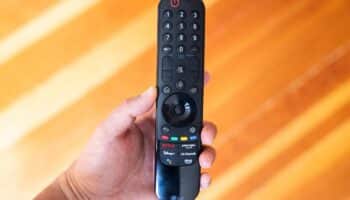We've independently reviewed this article to make sure it's as accurate as we can make it.
To find out more about our article creation and review process, check out our editorial guidelines.
Is your TV leaking fluid?
You’re not alone! Leaks can be super concerning and frustrating, especially when you paid a hefty sum for your TV.
But don’t worry; I’m here to help.
If your TV is leaking weird fluid, it can be due to rainwater seeping through the roof down the cable to the TV or condensation buildup from extreme temperature changes. The leak can also be attributed to electrolytic fluid originating from the capacitors or even liquid crystals seeping from the screen.
Read on to stop your TV from leaking!
Why trust us? This article was written by Craig Anderson and Austin Sharman.
Craig has helped thousands of other homeowners repair their appliances since 2016.
4 Reasons Your TV Is Leaking Fluid and What You Should Do
In this section, I’ll guide you through the different reasons that can explain why your TV developed a leak and provide various solutions.
Are you ready? Let’s dive in!

#1 Rainwater
Ok, so there’s a leak of water appearing around your TV. Not good. But what if I told you that the problem could lie with the installation of your TV aerial or something else?
You see, the fluid around your TV could be rainwater slowly dripping through the roof where your TV aerial was installed. Tiny drops of water can drip down the coaxial cable over time.
But how can you tell where the water leak is coming from? Here are some tips.
- First, turn the TV off and plug it out. Then, check the opening around the coaxial cable that leads outside. You probably have a leak if the ceiling looks water damaged or feels damp. In such cases, please stop using the TV as water has likely dripped into the cable, rendering it dangerous for use. You should then get in touch with the company that installed the cable.
- Touch the coaxial cable and see if it feels wet. If it does, you could have a leak. You should stop using the TV immediately and contact the company that installed the cable.
If you are certain you have a leak and think it’s coming from rainwater, you should stop using your TV and call a certified technician. Check if your TV is still under warranty.
#2 Condensation
I’ve seen TVs leak water due to condensation.
So, if you have been dealing with extreme weather changes, e.g., very cold to very humid, you could have a condensation problem.
If your TV is battling with condensation, you should be able to see it on the outside of the screen. In extremely humid climates, you can even see it on the inside of the screen. Once the humidity in the air dissipates, the condensation will pool together and could also appear as a leak around your TV.
So, how can you be sure that it is condensation that you’re dealing with? Check for the following tell-tale signs.
- You live in an extremely humid climate. It is not unknown for LCD TV screens to develop condensation on the outside or even inside of the screen.
- When you run your hands over the TV, it feels wet. If such cases, plug the TV out immediately and discontinue its use.
What should you do if your TV is condensing? Here are a few tips.
- Unplug your TV until you can get it dry.
- Take the TV into a warm (but not humid) room. Leave it there to dry out. If the atmosphere in your home is very humid, try using a dehumidifier or air conditioning. Please do not use your TV until it is dry.
- Plug the TV out and carefully blow dry it on cool. If it is a warm day, you could also leave it in front of a free-standing fan.
- If you cannot remove the water from the TV, stop using it and contact your manufacturer.

#3 Electrolytic Fluid
Now, let’s get into some of the more complex reasons that can explain why your TV is leaking.
TV leaks can occur if electrolytic fluid is leaking from the capacitors.
If a capacitor blows on your TV, you’ll hear a loud pop, notice an electric burning smell, and the TV won’t turn on.

Here are other signs to look out for that are unique to busted capacitors.
- The TV is leaking reddish-brownish fluid. The mark it leaves can look like a dried coffee stain.
- The TV leaks a small amount of fluid around the TV’s vents.
- The TV is not working at all.
If the capacitors in your TV have gone bad, you should call a professional. Capacitors save up a charge for years and can be lethal. I strongly recommend NOT fixing the issue yourself unless you really know what you’re doing! Instead, contact a technician.
Keep in mind that the power board will need to be replaced if the capacitors fail because other components can be compromised. I’ve seen that the repair can cost up to $250, excluding labor. So it’s important to check if your TV is still under warranty.
#4 Liquid Crystals
Your TV can also drip a weird fluid because of a leak in the liquid crystals.
LCD TVs use liquid crystals to create a picture. But, these crystals are actually very viscous, and it is hard for them to physically drip. However, the crystals could leak from the TV if your screen had a problem.
So, what should you do if you suspect your TV is leaking liquid crystals? Here’s what I recommend:
- Turn the TV off and unplug it. Please do not continue to use the TV while it is leaking.
- Take a few photos. You should photograph a leak from liquid crystals for you to share with your manufacturer. An LCD panel leak has been known to strip paints and corrode plastics. With that said, it is best you clean it up immediately.
- Do not touch the leak with your bare hands. Use gloves while cleaning it up. If some of the leak gets onto your skin, wash your hands immediately with soap and water.
Call a professional and check the status of your warranty. It’s worth mentioning that the cost of replacing an LCD panel can range between 40-90% of the TV’s initial value, so I find it’s more cost-effective to replace the entire unit.
Wrapping Up: Addressing TV Leaks
Hopefully, now you know how to fix your TV leak.
Remember, your TV can leak fluid due to rainwater seeping through the roof or condensation buildup. More complex issues like an electrolytic fluid originating from the capacitors or liquid crystals seeping from the screen can also explain the leak.
Don’t forget that if you find any form of fluid leakage from your television, it’s best to call a certified technician.
Please check out our other free guides if you found this article helpful.
Thanks for reading. Have a great day!
-Craig








